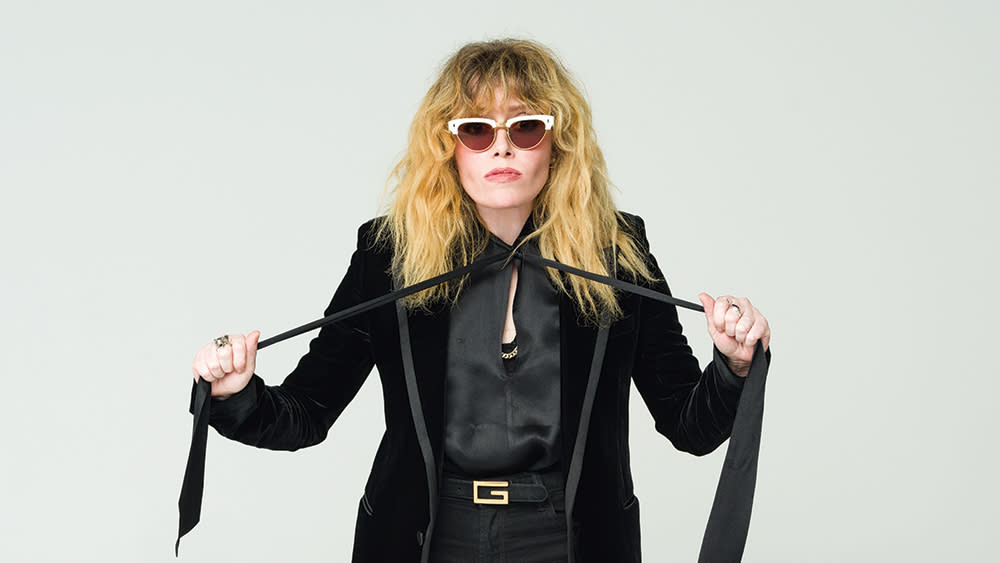Natasha Lyonne Talks Intersectionality, the Origins of ‘Russian Doll’ and the Necessity of Reality

Natasha Lyonne may have been in the spotlight for more than 30 years, but the lack of diversity and inclusion within the creative sphere still baffles her.
“Be intersectional in all ways, and it will transition into gender,” the actress-writer-producer-director urged during her keynote at a female and non-binary-centered event outside of SXSW proper Sunday.
Related stories
Kathy Bates, Kevin Costner Praise Theater Experience Amid Netflix Awards Debate (Watch)
'Who Let The Dogs Out?' Doc Offers Fascinating Look at the Origin of the Baha Men Hit
Lyonne has become a LGBTQ icon over the years, for roles in the cult classic “But I’m a Cheerleader” (which she recalled being controversial when it was first released — and surprised at the fact that it is still often being talked about in the same manner as it was then) and her seven-season stint as Nicky Nichols on Netflix’s “Orange is the New Black.”
In many ways, Lyonne said, “Orange is the New Black” led to “healing around [my] own self-doubt.” While she spoke volumes of enjoying her time on the show, calling her cast mates “chosen family,” she came into the role unaware of the “industrial prison complex,” and learned more about its problems as seasons went on. She joked about having spent so much time with a group of people who knew her too well, pleased when creator Jenji Kohan asked her to direct an episode of the seventh and final season, instead of asking her to “stay far away.”
Lyonne also sat in the director’s chair for “Russian Doll,” the Netflix comedy she also co-created, wrote and starred in that launched just last month.
“Amy [Poehler] called me one afternoon and said, ‘You’ve always been the oldest girl in the room, do you want to make a show about it?’” Lyonne said. The result was first a pilot entitled “Old Soul” that NBC opted not to pick up to series, but encouragement from Poehler and Maya Rudolph kept Lyonne working, she shared. Eventually she spun similar characters and themes into “Russian Doll,” a series she described as “living reality.”
“It seems so much harder, the idea of reality. Actual reality lends itself to drama,” Lyonne said.
“Russian Doll” had an all-female writers’ room, but Lyonne shared that that was not intentional: The best people for the job just happened to identify as female, she noted. The result was bringing a character to life whose gender didn’t matter, because it was never explicitly talked about. In turn, Nadia became “a 360-degree version of myself,” she said.
“[It] was just forever in my mind and I guess it’s really a story about failure,” Lyonne said of the story of “Russian Doll,” centered on her character of Nadia who is on a self-destructive path and, only after dying and being forced to relive the last moments of her life over and over again, does she start to open her mind and heart up to others.
Given that the theme of “Russian Doll” was ultimately about the important of connection, Lyonne also discussed social media in Austin, Texas. She admitted to her own vices, such as various Instagram accounts about cats), but insisted that others not “compare and despair” while using various platforms.
“[It’s] a real nightmare. Don’t buy the lie of the mind. Everybody is kind of architecting a make-believe life,” she said of social media. “It’s important to get out there, in the world, you know. … It’s really important to also get some hands-on research in the field. Now, that can mean any number of things. Even if the field is at the bar. I don’t really care. Either there will be a virtual reality world [or] we’ll just have to be really into the stuff [we do].”
Sign up for Variety’s Newsletter. For the latest news, follow us on Facebook, Twitter, and Instagram.

